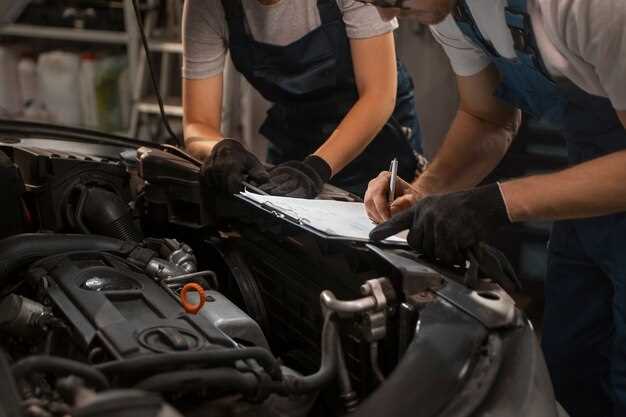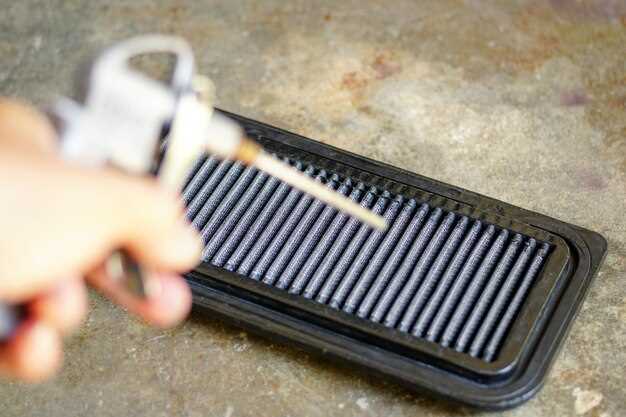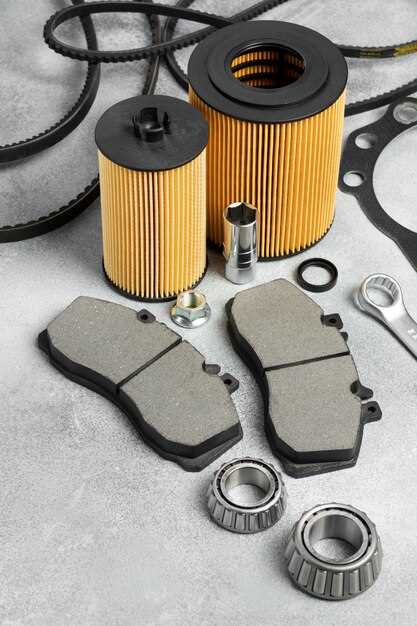
How to Know When to Replace a Fuel Filter
- Arthur Rodriquez
- 0
- Posted on

The fuel filter plays a crucial role in the performance and longevity of your vehicle. It is responsible for filtering out impurities and contaminants from the fuel before it reaches the engine. Over time, the filter can become clogged or damaged, leading to a variety of issues that may require a quick replacement.
Understanding the signs that indicate your fuel filter may need replacing is essential for maintaining optimal engine performance. Neglecting this maintenance task can result in reduced fuel efficiency, engine sputtering, and even stalling. By recognizing these symptoms early, you can avoid more significant problems and costly repairs.
This article will guide you through the most common signs that suggest your fuel filter is due for a replacement. By staying informed and proactive, you can ensure that your vehicle runs smoothly and efficiently for years to come.
Identifying Performance Issues in Your Vehicle

Performance issues in your vehicle can often be traced back to a clogged or malfunctioning fuel filter. This essential component ensures that impurities are removed from the fuel before it reaches the engine. When the filter becomes saturated with debris, it begins to restrict fuel flow, leading to noticeable performance problems.
One of the first signs you may notice is a decrease in acceleration. If your vehicle struggles to gain speed or responds sluggishly when you press the accelerator, this could be an indication that the fuel filter is obstructed. The engine requires a steady flow of fuel to perform optimally, and any interruption can result in poor performance.
Additionally, you might experience engine misfires. A clogged fuel filter can cause uneven fuel delivery, resulting in inconsistent combustion within the engine cylinders. This manifests as rough idling or uneven power delivery when driving.
Moreover, be mindful of stalling issues. If your vehicle unexpectedly stalls or has difficulty starting, it may be due to inadequate fuel supply reaching the engine. A failing fuel filter can hinder this process, causing interruptions in performance.
In some cases, you may also notice reduced fuel efficiency. If you find yourself making more frequent stops at the gas station without changing your driving habits, a clogged filter may be preventing the engine from utilizing fuel effectively.
Lastly, keep an ear out for unusual engine noises. If the vehicle emits strange sounds, such as sputtering or knocking, it may indicate an issue with fuel delivery, often linked to a compromised fuel filter.
By recognizing these performance issues early on, you can address the problem, ensuring that your vehicle runs smoothly and efficiently. Regular maintenance of the fuel filter should be part of your automotive care routine to avoid these complications.
Visual and Physical Signs of Fuel Filter Failure
One of the first indicators of fuel filter failure is the appearance of dirt or debris accumulating on the filter’s exterior. A clean filter should be relatively free of contaminants. If you notice significant gunk or discoloration, it may signal that a replacement is necessary.
Another visual cue is the presence of rust or corrosion. These elements can compromise the integrity of the fuel filter and affect its performance. If you observe any signs of rust on your filter, it is crucial to consider replacing it.
Physical symptoms such as engine sputtering or stalling can also indicate a clogged fuel filter. These issues arise when fuel flow is restricted, resulting in insufficient fuel delivery to the engine. If you experience these symptoms, the fuel filter may need immediate attention or replacement.
Additionally, a noticeable decrease in fuel efficiency can signal that the filter is no longer functioning effectively. A restricted filter forces the engine to work harder, leading to increased fuel consumption. If your vehicle’s mileage drops unexpectedly, investigate the fuel filter as a potential culprit.
Lastly, frequent engine misfires can be traced back to inadequate fuel supply due to a failing filter. If your engine struggles to run smoothly, you may need to assess the condition of the fuel filter and consider a prompt replacement.
Steps for Fuel Filter Replacement and Maintenance

Replacing your fuel filter is essential for maintaining optimal vehicle performance. Follow these steps for proper replacement and maintenance.
1. Gather Necessary Tools and Materials: Before starting the replacement process, collect the required tools such as a wrench, screwdrivers, and a new fuel filter. It’s advisable to have rags and a container to catch any spilled fuel.
2. Ensure Safety: Park your vehicle in a well-ventilated area and turn off the engine. Disconnect the battery to avoid any electrical issues. Wear safety goggles and gloves to protect yourself from fuel splashes.
3. Locate the Fuel Filter: Depending on your vehicle model, the fuel filter might be located under the car, in the engine bay, or near the fuel tank. Refer to your owner’s manual for specific location details.
4. Relieve Fuel Pressure: Carefully relieve the fuel pressure before removing the filter. This can typically be done by removing the fuel pump fuse and starting the engine until it stalls.
5. Remove the Old Fuel Filter: Use a wrench to disconnect the fuel lines from the old filter. Be prepared for some fuel spillage. Once the lines are removed, take out the old filter, noting the orientation for installation of the new one.
6. Install the New Fuel Filter: Position the new filter in the same orientation as the old one. Reconnect the fuel lines securely and ensure there are no leaks.
7. Reconnect the Battery: After the installation is complete, reconnect the battery. Ensure all tools are removed from the engine bay and check for any loose connections.
8. Test the System: Turn on the ignition to prime the fuel system. Check for any fuel leaks around the filter connections. If everything looks secure, start the engine and let it run for a few minutes to ensure proper operation.
9. Regular Maintenance: Schedule regular checks of your fuel filter as part of your vehicle’s maintenance routine. Refer to your vehicle manual for recommended replacement intervals.